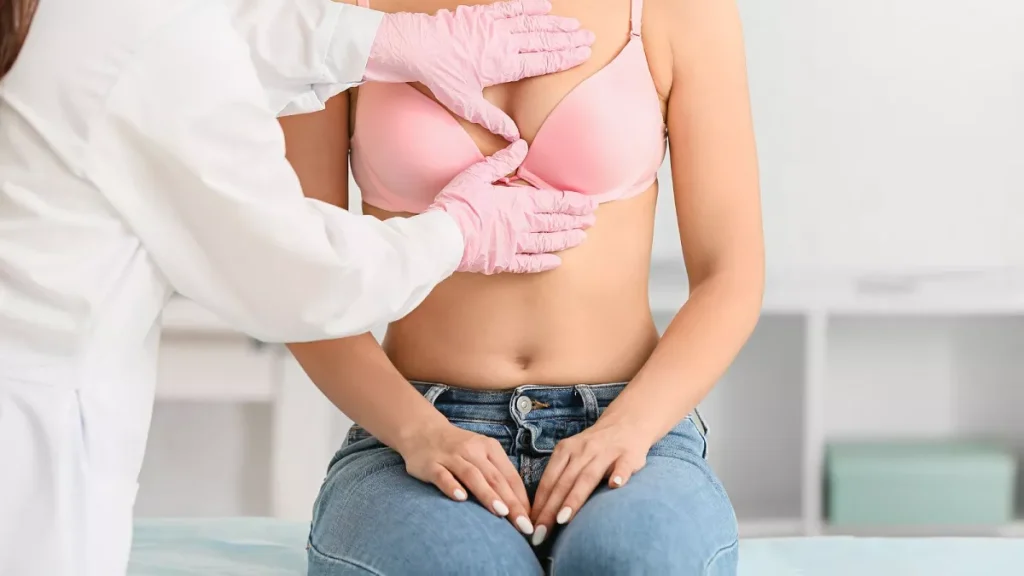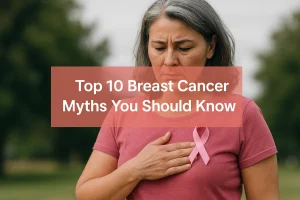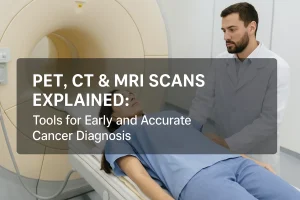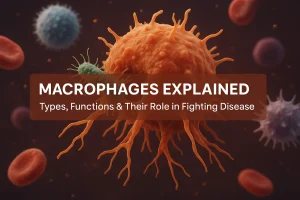
Can Teenagers Develop Breast Cancer? Facts, Risk & Key Insights
While breast cancer is commonly associated with older women, it is important to note that it can, on rare occasions, affect teenagers as well. Less than 5% of breast cancer cases in women under 40 occur in this age group, and even fewer occur in teenagers, according to the American Cancer Society. No age group is immune, though. Only early detection can save lives.
What Is Breast Cancer?
Breast cancer develops when cells in the breast grow abnormally, forming a tumor. The majority of forms begin in the glands that produce milk (lobular carcinoma) or the milk ducts (ductal carcinoma). Teenagers may notice lumps during puberty as their breast tissue naturally develops; these are typically benign, but they can occasionally be cancerous.
Are Breast Lumps Normal in Teenagers?
Yes, most teenage girls experience harmless breast lumps caused by hormonal changes. These are called benign breast masses and include:
- Fibroadenomas: Firm, smooth, and movable breast lumps that are painless and not cancerous. Usually harmless, they are common in young women and teens. Most don’t require treatment, but if they grow or cause discomfort, a doctor may suggest removal or regular monitoring.
- Breast Cysts: Fluid-filled sacs that can feel soft or slightly tender, especially before periods. These are benign and often go away on their own. If a cyst becomes painful or noticeable, medical evaluation may be needed to rule out other conditions.
- Fibrocystic Changes: These lumpy or tender breast changes are very common in teenagers and are linked to menstrual cycle hormones; they may cause discomfort before periods but are not cancerous. Lifestyle changes, such as reducing caffeine intake or using warm compresses, can help manage symptoms.
Point to note: In case a lump becomes painful or lasts more than 2–3 weeks, one must consult a doctor.
Breast Cancer Symptoms in Teenagers?
Teenagers rarely develop breast cancer. Early detection, however, is essential and can aid in identifying the condition that adolescent girls should be on the lookout for:
- A recent breast or underarm lump
- Unusual changes in breast size or shape
- Redness, scaling, or dimpling of the skin
- Unwanted Nipple discharge unrelated to breastfeeding
- Persistent pain in the breast or nipple
What Increases Breast Cancer Risk in Teens?
Though rare, the following can increase a teen’s risk:
- Genetic mutations (such as BRCA1 or BRCA2)
- Family history of early breast cancer
- Radiation therapy in the chest during childhood
- A few rare inherited syndromes
How Is Breast Cancer Diagnosed in Teens?
Diagnosis usually includes:
- Clinical breast exam—Starts with a physical examination. A healthcare provider will manually check the breasts and underarms for any unusual lumps, swelling, or skin changes.
- Ultrasound or magnetic resonance imaging (MRI)—Imaging tests check for whether a lump is solid (possibly cancerous) or fluid-filled (likely a benign cyst) (instead of mammograms, which are less effective in dense breast tissue).
- Biopsy—In case a suspicious lump is found, a tissue sample is taken for microscopic analysis of breast cancer.
What are Breast Cancer Treatment Options for Teenagers?
Treatment depends on the type and stage and is highly personalized according to the individual’s needs. Options include:
Surgery:
- Lumpectomy: A lumpectomy involves removing just the tumor and a tiny portion of the surrounding tissue. Done when the cancer is detected early and localized.
- Mastectomy: The entire breast may be removed when cancer becomes more advanced and aggressive; reconstructive surgery may be recommended.
- Lymph Node Biopsy: To determine whether the cancer has spread outside of the breast, surgeons may remove and examine lymph nodes in the axilla, which is located beneath the arm.
Other Treatment Includes
- Radiation Therapy: Use high-energy beams to eliminate remaining cancer cells after surgery.
- Chemotherapy: Drugs used to eliminate cancer cells throughout the body. Often administered before or after surgery.
- Immunotherapy: Aids the immune system in detecting and eliminating cancer cells—a promising area for cancers that do not respond to traditional treatments.
- Supportive Care: Teenagers require emotional support, counselling, and family involvement during treatment.
Can Breast Cancer Be Prevented in Teens?
Though it can’t always be prevented, risk can be reduced by:
- Eating a healthy, balanced diet
- Regular physical activity
- Avoiding smoking and alcohol
- Reporting any breast changes to a doctor early
Conclusion
Although rare, teenage breast cancer is not unheard of. The key is to be aware of the symptoms early on and not ignore changes in the body. It’s best to get checked out if something doesn’t feel right. In rare situations, a proactive approach helps to guarantee the best results.
Also Read:
- Targeted Therapy for Breast Cancer
- Stage 1 Breast Cancer Symptoms
- Breast Cancer Treatment Cost in India
FAQs
Can teenagers really get breast cancer?
Yes, but this is extremely rare. Teenagers with breast cancer account for less than 0.1% of all cases. The majority of breast lumps in teenagers are benign (non-cancerous), such as fibroadenomas.
What are the common signs of breast cancer in teenagers?
Warning signs may include:
- A solid, painless lump in the breast or underarm.
- Nipple changes include discharge, inversion, and bleeding.
- Swelling and skin changes (dimpling, redness, itching).
However, most lumps in teenagers are not cancerous.
What risk factors can increase the chance of breast cancer at a young age?
Risks include:
- A family history of breast and ovarian cancer.
- BRCA1/2 gene mutations.
- Previous chest radiation in childhood.
- Hormonal imbalance, or early puberty.
How can teenagers check their breast health?
- Perform regular self-breast awareness (not strict monthly exams, but simply knowing what feels normal).
- If you notice a lump or an unusual change, see a doctor right away.
- Teenagers with a strong family history may require genetic counseling.
Should parents worry if their teen has a breast lump?
Not in all cases. Most teen breast lumps are benign (fibroadenomas or cysts). Still, it is critical to have any lump examined by a healthcare professional to rule out cancer.







